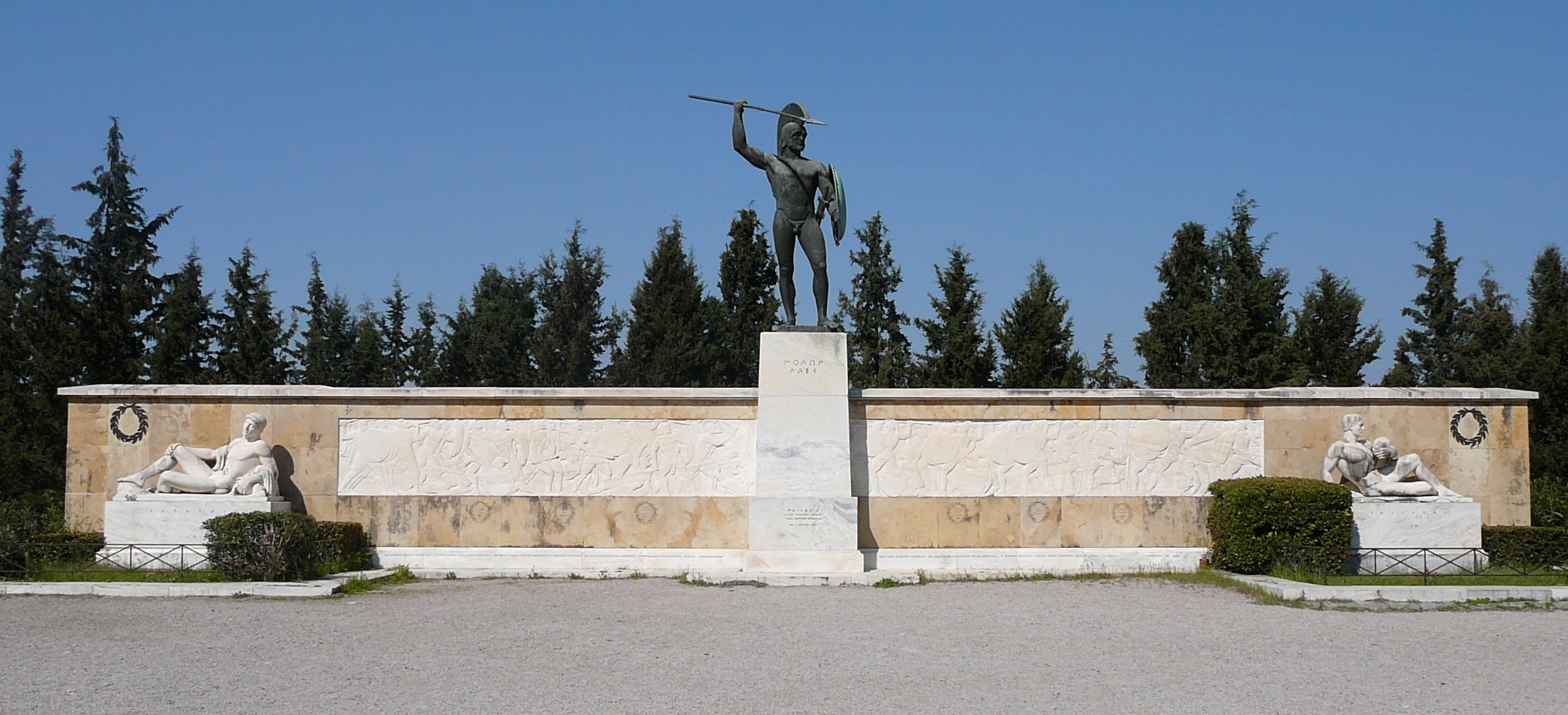
Thermopylae
The Spartans fought the Persians at the mountain pass of Thermopylae for three days, while the other Greek soldiers got safely away to the south. At the end of three days, every one of the three hundred Spartan soldiers was dead, along with the Spartan king, Leonidas. But meanwhile the Athenians and other allies had time to get away safely.
After the war was over, the Greeks put a memorial stone at Thermopylae. On it, there was a poem by Simonides, which says, “Stranger, go tell the Spartans that here, obeying their orders, we died.”

The monument that stands at Thermopylae today (it’s not ancient though)
The Persians got through Thermopylae and rushed on south. Thebes, which was the first big city the Persians would reach, went over to the Persian side and made an alliance with the Persians. So the Persians went by Thebes, without attacking it, and prepared to attack Athens. Argos, further south, decided to remain neutral. Athens was the next city going south. Sparta and Corinth thought that it was hopeless to try to defend Athens. They wanted the whole Greek army to retreat to Corinth and try to defend that instead.
Learn by doing: write your own poem about the battle at Thermopylae
More about the Second Persian War (Salamis)
Bibliography and further reading about Thermopylae:
Oxford First Ancient History, by Roy Burrell and Peter Connolly (1997). Lively interviews and pictures make the ancient Mediterranean come to life. For teens.
Leonidas: Hero of Thermopylae, by Ian Macgregor Morris (2003). A biography for young adults.
Gates of Fire: An Epic Novel of the Battle of Thermopylae, by Steven Pressfield (1999). For older readers – there’s a lot of graphic violence and some romance. But it’s a pretty accurate account of the battle, in fictional form, and very dramatic, though the writing seemed a little wooden to me.
A Brief History of Ancient Greece: Politics, Society, and Culture, by Sarah Pomeroy and others (2004). For college students.
The Greco-Persian Wars, by Peter Green (1998). A popular history of the wars.
The Greek and Persian Wars 499-386 BC, by Philip De Souza (2003).
The Persian Wars, by Herodotus. Straight from the Greek historian himself!